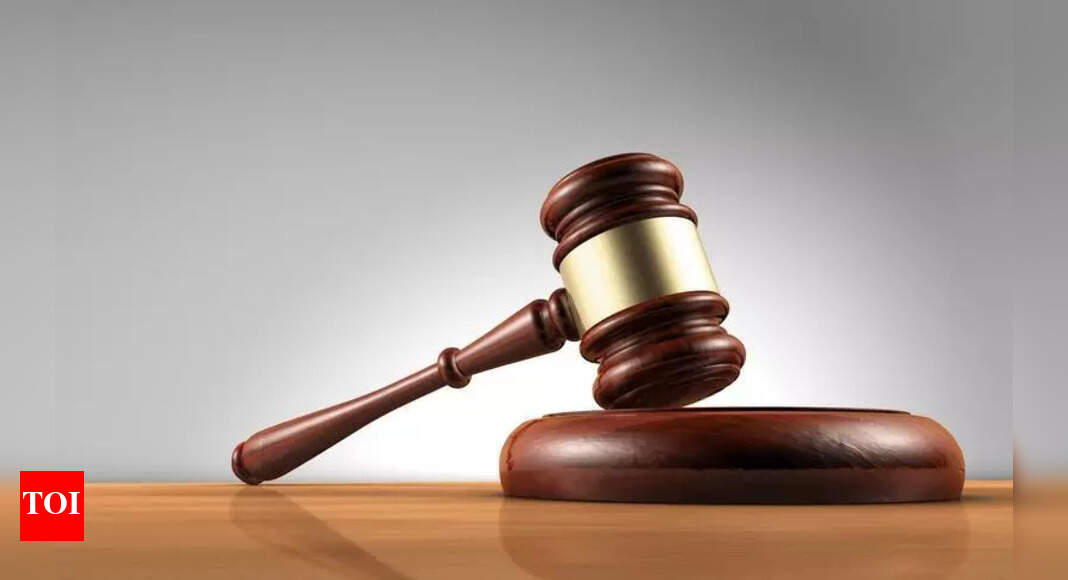World
High Court Overturns Gurgaon Court Order Against DSP Veer Singh

The Punjab and Haryana High Court has quashed a February 2022 order from a local court in Gurgaon, stating the judge’s actions were “unknown to law.” The original ruling mandated the state’s home secretary and Director General of Police (CID and Vigilance) to file a challan against DSP Veer Singh, who was then in charge of the district’s crime unit, related to allegations of his involvement in a false implication case. The court ordered that the process should be completed within two months.
Justice Jasjit Singh Bedi, while approving the petition filed by DSP Singh, highlighted that the trial court failed to adhere to the mandatory procedures established by The High Court Rules (Chapter 1 Part H Rule 6) when recommending action against a police officer. The high court determined that proper protocol necessitates forwarding a copy of the judgment to the district magistrate, who must, in turn, send it to the registrar of the high court with a covering letter, as outlined in a 1936 circular from the home secretary.
The ruling stated, “No such procedure was followed in the instant case, and the trial court, while convicting the accused, directed the submission of a challan against the petitioner and other officials and for completion of the proceedings within two months. This procedure followed by the trial court is unknown to law.”
DSP Singh’s counsel argued that the trial court’s directive emerged following the conclusion of the trial against four convicted police officers. Legal recourse under Sections 193 or 319 of the Criminal Procedure Code allows a trial court to summon a person as an accused during the process of taking cognisance or recording prosecution evidence. The high court was informed that this standard procedure was not observed, as the trial court’s directions were issued abruptly during the conviction of the co-accused.
After considering all relevant arguments, the high court annulled the directions from paragraph 28 of the February 23, 2022, judgment delivered by the then additional sessions judge in Gurgaon, along with all related proceedings concerning DSP Singh.
Background of the Case
The origins of this case date back to September 3, 2009, when Hansraj Rathi, a cyber café owner in Gurgaon’s Rajive Nagar, was arrested along with his employees by sub-inspector Ram Dayal and constables Sunil, Rajesh, and Vinod on allegations of producing fake voter cards. Rathi claimed that the arrests were prompted by his refusal to pay a ₹1 lakh bribe demanded by the officers.
Following their release on bail two months later, Rathi and his employees reviewed CCTV footage of the incident. They discovered discrepancies in the police records, which falsely indicated that the raid occurred on September 5, 2009, while the actual date was September 3. A subsequent investigation by the Haryana CID identified misconduct by the four officers, leading to their conviction by the Gurgaon court.
It was during this conviction that the additional sessions judge ordered a challan against DSP Singh, who was then overseeing the crime unit. The high court’s recent ruling effectively nullifies the trial court’s previous order and underscores the importance of adhering to established legal protocols in the handling of such cases.
-

 World5 months ago
World5 months agoSBI Announces QIP Floor Price at ₹811.05 Per Share
-

 Lifestyle5 months ago
Lifestyle5 months agoCept Unveils ₹3.1 Crore Urban Mobility Plan for Sustainable Growth
-

 Science4 months ago
Science4 months agoNew Blood Group Discovered in South Indian Woman at Rotary Centre
-

 World5 months ago
World5 months agoTorrential Rains Cause Flash Flooding in New York and New Jersey
-

 Top Stories5 months ago
Top Stories5 months agoKonkani Cultural Organisation to Host Pearl Jubilee in Abu Dhabi
-

 Sports4 months ago
Sports4 months agoBroad Advocates for Bowling Change Ahead of Final Test Against India
-

 Science5 months ago
Science5 months agoNothing Headphone 1 Review: A Bold Contender in Audio Design
-

 Top Stories5 months ago
Top Stories5 months agoAir India Crash Investigation Highlights Boeing Fuel Switch Concerns
-

 Business5 months ago
Business5 months agoIndian Stock Market Rebounds: Sensex and Nifty Rise After Four-Day Decline
-

 Sports4 months ago
Sports4 months agoCristian Totti Retires at 19: Pressure of Fame Takes Toll
-

 Politics5 months ago
Politics5 months agoAbandoned Doberman Finds New Home After Journey to Prague
-

 Top Stories5 months ago
Top Stories5 months agoPatna Bank Manager Abhishek Varun Found Dead in Well









